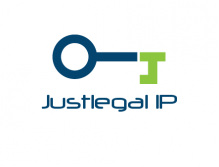Put option- Enforceability in terms of law
A “Put Option” is an Investor’s
exit/liquidity option by way of which an Investor can, on the happening of a
“Put Trigger” event, compel the promoter/ shareholder of Company to buy its
shares either wholly or partly, at a valuation, agreed between the parties. A
“Put Option” has become a popular exit option in business practice and has
found expression by way was a “Put Option” Clause in Share Holders Agreement
(SSA) or Share Subscription Agreements (SHA). But such
seemingly standard exit rights may not always be enforceable under Indian law.
After a notification
issued in 1969 under the Securities Contracts Regulation Act (SCRA), 1956, all
transactions in securities other than on a “spot delivery” basis or unless
settled through the stock exchange are illegal. Though this notification was
repealed in 2000, another notification was issued on the same day, which was
for the most part similar to the 1969 notification.
Question: Is a
put option a spot delivery contract as is permissible under SCRA, or is it a
forward contract and thus illegal?
Earlier view: A put option may not
even be treated as a completed contract as it is more in the nature of a
contingent contract. It would result in a contract for sale or purchase of
securities only upon the exercise of the option and not merely upon the grant
of such option. Further, once the option is exercised, the contract is
typically performed immediately, that is, on a spot delivery basis and should
thus be enforceable. This line of reasoning was accepted by the Bombay high
court in the case of Jethalal C. Thakkar vs R.N. Kapur on 12 August, 1955
decided under the erstwhile Bombay Securities Contracts Control
Act (BSCCA), 1925, an enactment that is broadly similar to SCRA.
Present view: In the recent
decision of the Bombay high court in the Niskalp
Investments and Trading Co. Ltd v. Hinduja TMT Ltd case in 2008 (Hinduja
case) counters the above principle. In the Hinduja case, in accordance with the
agreement executed between the parties for the purchase of securities, the
purchaser was to be provided an exit by way of an IPO of the company, failing
which the seller was to buy back the purchaser’s stake at a 20% internal rate
of return. The seller did not honor its obligations under the agreement and
consequently, the purchaser approached the courts. However, the court held in favor
of the seller, stating that the arrangement to buy back shares is hit by SCRA
and is thus void.
The court reached such a conclusion by relying on a
summons for judgment passed
F.I. Rebello, J. in Summons for Judgment No. 511 of 1997 in Summary Suit No.
4556 of 1996 being dated 6-4-1999, which, in turn, had relied on a
ruling passed by the Supreme Court in the case of BOI Finance Ltd. v. Custodian [1997] 10 SCC
488 : 12 SCL 99.
Analysis: As long as put
options are settled on a spot delivery basis, they should be enforceable, necessary
amendments to SCRA or a clarificatory circular by the Securities and Exchange
Board of India to this effect would be useful, especially in the prevailing
market conditions. Until such time, rights such as put option rights and rights
to cause the company to buy back shares, even if settled on a spot delivery
basis, may be regarded as being unenforceable, more so in light of the ruling
in the Hinduja case.
